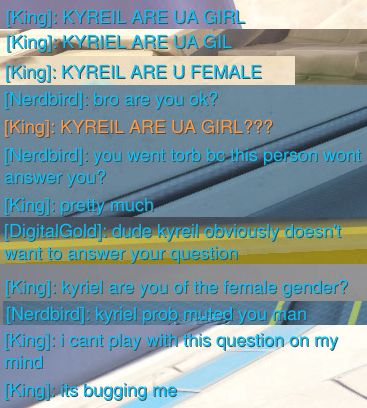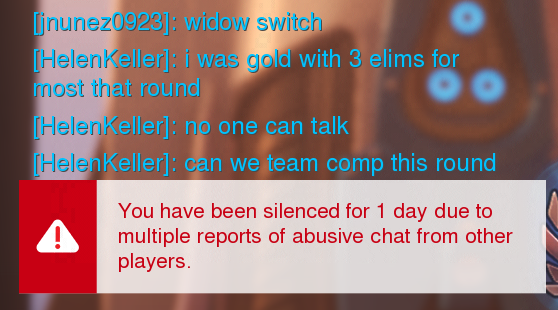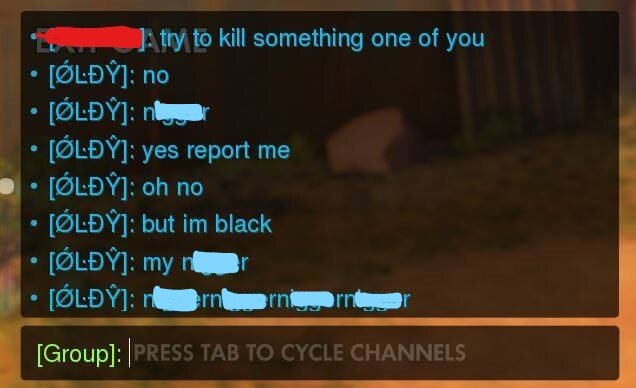Toxicity is Down in Overwatch
Toxicity in gaming is a huge problem. Fortunately, some developers, like Blizzard, are taking measures to reduce problematic behavior in gaming.
At the 2019 Game Developers Conference, Blizzard research developer Natasha Miller said toxicity is down in Overwatch by 40 percent since last year. They attribute the decline in “problematic behavior” to the in-game measures Blizzard implemented in 2018.
In the early summer of 2018, Blizzard implemented the endorsement system, which allowed Overwatch players to endorse” other players through voting at the end of each game. The goal was to encourage civility and discourage toxic behavior in-game. Shortly after the implementing Endorsements, Jeff Kaplan said,
Our Global Insights group just finished parsing some stats as it relates to LFG and Endorsements.
Post release of Endorsements and LFG:
The % of Competitive Matches that Contain Abusive Chat is down:
26.4% in the Americas
16.4% in KR
The % of Daily Players being Abusive is down:
28.8% in the Americas
21.6% in KR
We’re really pleased with the community’s efforts to make OW a better place! Thank you all!
Some players have complained about encouraging people to be “fake nice” while others have expressed that they’ll take fake nice and civility over rude and nasty comments any day. There is still quite a bit of push-back from players who think that people should just stop being offended by things on the internet.
Blizzard’s Endorsement system relies on players to report what toxic behavior, which has always been an option, but combined with the new system, players not only report bad behavior but vote for good behavior from teammates, selecting one of three options for up to three teammates: Shot Caller, Good Teammate, and Sportsmanship and players are able to vote for Sportsmanship for an enemy. If players continue with bad or toxic behavior, they may not receive endorsements. If a player’s endorsement level drop to a certain number they could lose out on loot boxes and become unable to use Looking For Group until their endorsement level rises.
We are not sure how effective the endorsement system is on players who have consistently played since Overwatch’s release. Veteran players tend to have all of the character skins, emotes, voice lines, and sprays and may not care about receiving awards. The endorsement system also does not take into account the numerous unreported incidents of toxic behavior, as young players between the ages of 14 and 21 tend to not report incidents of toxicity or abuse. Younger people tend to not want to ask for help, so abuse can be ongoing. There’s also the stigma of perception—gamers are supposed to have a thick skin and are somehow looked down upon if they are emotionally affected by the negative words of others. This related to the belief in internet anonymity contributing to the rise of online abuse in gaming communities and social media.
People online are expected to ignore/mute harmful and abusive behavior toward them while the abuser moves on to another person, not encountering any repercussions for their behavior. The belief in lack of consequences for bad behavior online has led to the rise in racism, sexism, and homophobia becoming a fun-house, mirrored reflection of modern society offline rebelling against people no longer accepting jokes and commentary they find offensive and/or demeaning. Too many people do not understand that there is a difference between mere trolling and using racist, sexist, homophobic slurs.
It’s important that developers and companies continue to work to reduce toxicity in gaming spaces. Companies like Blizzard and Riot Games have high instances of toxic behavior because of their games’ popularity attracting more people. It makes sense, then, that they would lead the charge against combating such behavior. Riot Games added in-game tips to encourage more positive gameplay, bringing verbal abuse down by about 6 percent and offensive language by 11 percent.
Players are also helping decrease toxic behavior in Overwatch by calling out such behavior and addressing it head-on. This is especially effective, if not more effective, than endorsement systems because it’s not forcing fake behavior; it’s immediately letting the person engaging in problematic behavior know that abuse is unacceptable instead of brushing it off as mere trolling. The more players stand up for each other to combat toxicity, the more we reduce toxic behavior and can actually enjoy the games we pay for.



